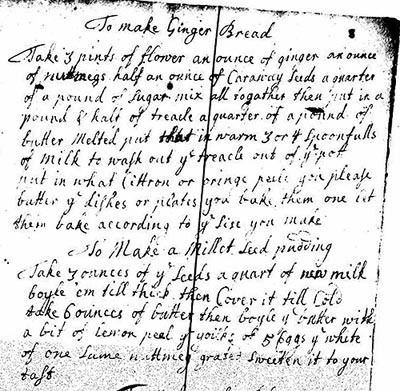A fascinating new resource is available to ±«Óătv students through the Dal Libraries website. The Perdita Manuscripts is a digital collection of early modern women’s writing from the 16th and 17th centuries. Over 500 manuscripts have been digitized and feature writing on a wide range of subjects from recipes to poetry to receipts and household accounts.
“It is important to realize that during this time many women wrote primarily in manuscript rather than print,” says Christina Luckyj, Professor of English, “not only because much of their writing was domestic and private but also because there was a lower-class stigma attached to going into print, for men and women.”
Invaluable research tool
Dr. Luckyj was the driving force behind making the documents accessible to ±«Óătv students.
“This catalogue is an invaluable research tool for historians and literary scholars,” says Ms. Luckyj who will be teaching a fourth-year seminar in Renaissance Women’s Writing () next semester. This seminar, in combination with Dr. Luckyj’s graduate seminar that focuses on the politics of women’s writing, will make great use of the Perdita Manuscripts.
Until recently, the only way to view the Perdita Manuscripts was in person. The cost and distance associated with travel to England often made accessing the documents impossible.
Meaning 'lost'
The project is named after the heroine of Shakespeare’s The Winter’s Tale. Perdita literally means “lost” in Latin. In The Winter’s Tale Perdita is the daughter of Leontes, King of Sicilia. She is banished to a remote seacoast as an infant and left to die because her father believes she is the product of an affair. She is rescued by a kind shepherd who raises her as his own daughter. Eventually, her true identity as a princess is revealed and she reconciles with her father.
The Perdita Manuscripts project is based in England and was established in 1997 jointly by Nottingham Trent University and the University of Warwick with funding from the Arts and Humanities Research Board.
LINK:
| Excerpt from Mary Glover’s manuscripts, 1688
Take 3 pints of flower an ounce of ginger an ounce of nutmegs half an ounce of Caraway Seeds a quarter of a pound of sugar mix all together then put in pound & half of treacle a quarter of a pound of butter melted put that in warm 3 or 4 spoonfulls of milk to was out ye treacle out of ye pott put in what Cittron or orange peele you please butter ye dishes or plates you bake them one let them bake according to ye size you make Notes: In old English, “ye” represents a “th” sound or the word “the”. Treacle is a syrup made during the refining process of sugar cane. It was used in cooking as a sweetner. |

